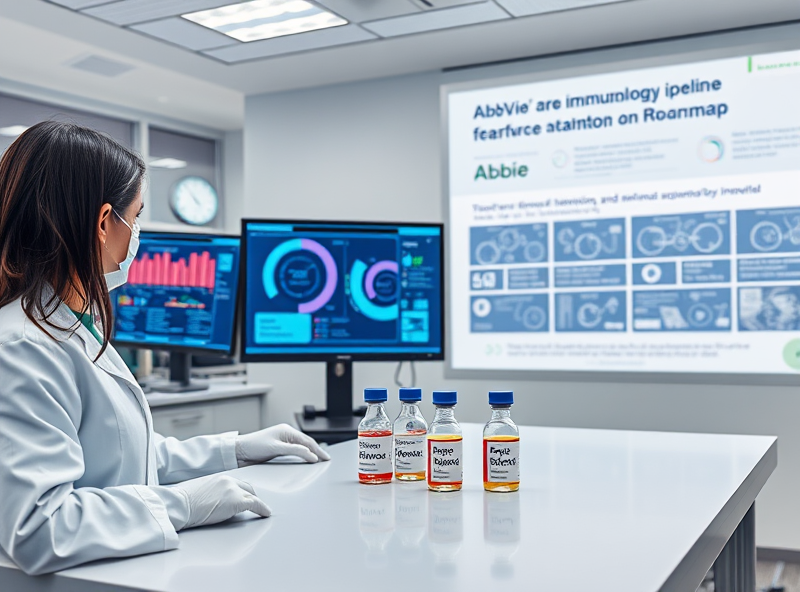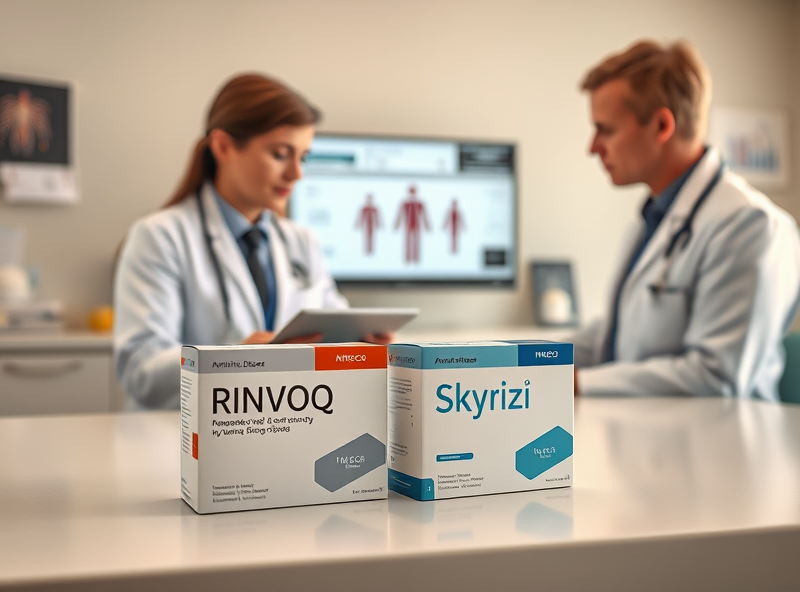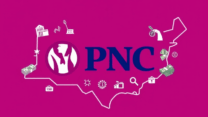
AbbVie’s Strategy After Humira: Immunology Leadership & New Drug Momentum
AbbVie’s Immunology Leadership: Driving Autoimmune Treatment Innovations

As Humira, one of the world’s best-selling drugs, approaches the end of its exclusivity period, AbbVie is strategically shifting its focus to maintain its leadership in immunology. The company is leveraging its deep expertise to bring forward next-generation therapies that address unmet needs in autoimmune diseases such as rheumatoid arthritis, Crohn’s disease, and ulcerative colitis.
AbbVie’s immunology pipeline is robust, with two major successors to Humira already making significant market impact: Rinvoq (upadacitinib), a JAK inhibitor, and Skyrizi (risankizumab), an IL-23 inhibitor. These therapies are not only designed to be more targeted and effective but also aim to improve patient quality of life by offering better safety profiles and more convenient dosing options.
Rinvoq and Skyrizi have received multiple FDA approvals across a range of autoimmune conditions, reflecting AbbVie’s commitment to expanding treatment options. Their development is backed by extensive clinical trials and real-world evidence, which helps physicians make more informed decisions and patients receive more personalized care.
AbbVie is also investing heavily in research and development, with over 90 ongoing or planned clinical trials in immunology. This pipeline includes potential new treatments for diseases like hidradenitis suppurativa and lupus, areas where patients often face limited options.
For patients and healthcare providers, this means access to innovative therapies that are not only more effective but also better tailored to individual needs. AbbVie’s strategy ensures that even as Humira’s dominance fades, the company remains at the forefront of immunology innovation.
Source: https://www.abbvie.com/our-science/pipeline.html
AbbVie’s Immunology Leadership: Driving Autoimmune Treatment Innovations

With Humira’s patent expiration in 2023, AbbVie faces one of the most significant challenges in the pharmaceutical industry: managing the decline of a blockbuster drug that once generated over $20 billion annually. The company, however, has proactively developed a robust strategy to maintain its leadership in immunology and ensure long-term growth.
AbbVie’s approach focuses on two key areas: expanding its immunology portfolio and accelerating innovation through new drug development. The company has successfully launched two promising successors to Humira—Skyrizi (risankizumab) and Rinvoq (upadacitinib). These therapies target different inflammatory pathways and have shown strong clinical efficacy in treating conditions like psoriasis, rheumatoid arthritis, and Crohn’s disease. By 2027, AbbVie expects these two drugs to generate more than $21 billion in combined annual revenue, effectively offsetting Humira’s decline.
Moreover, AbbVie is investing heavily in R&D, allocating over $6.5 billion annually to fuel innovation. This commitment has resulted in a pipeline of more than 90 active clinical programs, including novel treatments for autoimmune diseases, oncology, and neuroscience. This strategic diversification not only reduces dependency on a single product but also positions AbbVie as a long-term leader in immunology.
Patients stand to benefit greatly from this transition. With more targeted and effective therapies entering the market, individuals with chronic autoimmune conditions can expect improved outcomes and fewer side effects. AbbVie’s strategy highlights how pharmaceutical companies can responsibly manage patent cliffs while continuing to prioritize patient care and scientific advancement.
For more insights on AbbVie’s pipeline and financial outlook, you can visit their official investor page: https://investors.abbvie.com/
AbbVie’s Immunology Leadership: Driving Autoimmune Treatment Innovations

As AbbVie transitions beyond its blockbuster drug Humira, the company is strategically reinforcing its leadership in immunology through the accelerated growth of RINVOQ (upadacitinib) and Skyrizi (risankizumab). These two therapies are not only gaining momentum but are also redefining treatment standards across multiple autoimmune conditions.
RINVOQ, a selective JAK inhibitor, and Skyrizi, an IL-23 inhibitor, have shown robust clinical efficacy and safety profiles. Their expanding indications—ranging from rheumatoid arthritis and psoriatic arthritis to atopic dermatitis and Crohn’s disease—are helping patients achieve better disease control with fewer side effects. This is especially significant for individuals who have not responded well to traditional biologics or who seek more convenient dosing options.
The strategic advantage lies in AbbVie’s ability to differentiate these drugs based on their mechanisms of action and targeted delivery. For example, Skyrizi’s quarterly dosing schedule is a major convenience for patients, while RINVOQ’s oral administration offers an alternative to injectable therapies. These features not only improve patient adherence but also enhance quality of life.
From a healthcare perspective, the success of RINVOQ and Skyrizi is contributing to a more personalized approach to autoimmune care. Physicians now have more tools to tailor treatments based on patient-specific factors, leading to better outcomes. Moreover, AbbVie’s continued investment in immunology R&D ensures that new indications and formulations will keep emerging, sustaining innovation in this vital therapeutic area.
For patients and caregivers, this means more hope and more options. And for the healthcare system, it represents a shift toward more effective, patient-centered care models.
Source: https://www.abbvie.com/our-science/pipeline.html
AbbVie’s Immunology Leadership: Driving Autoimmune Treatment Innovations

As AbbVie transitions beyond Humira, the company is strategically expanding its immunology pipeline through emerging therapies and strategic partnerships. This forward-looking approach is essential not only for maintaining its leadership in autoimmune disease treatment but also for addressing unmet medical needs in chronic inflammatory conditions.
AbbVie is investing heavily in next-generation biologics and small molecules. Notably, Rinvoq (upadacitinib) and Skyrizi (risankizumab) are already showing strong performance in treating rheumatoid arthritis, psoriasis, and Crohn’s disease. These therapies are expected to anchor AbbVie’s immunology portfolio, with projections indicating multi-billion-dollar annual revenues in the coming years.
Beyond internal R&D, AbbVie is actively collaborating with biotech firms and academic institutions to access novel mechanisms of action. Recent partnerships, such as the collaboration with Calico Life Sciences to explore aging-related diseases and the acquisition of Syndesi Therapeutics for central nervous system targets, reflect AbbVie’s broader ambition to diversify its pipeline.
Emerging therapies in development include TYK2 inhibitors and bispecific antibodies, which offer targeted immune modulation with potentially fewer side effects. These innovations could significantly improve patient outcomes and quality of life, especially for those who have not responded well to existing treatments.
AbbVie’s strategy demonstrates a clear commitment to long-term innovation, ensuring that patients continue to benefit from cutting-edge therapies. By aligning scientific discovery with strategic investments, AbbVie is well-positioned to remain a leader in immunology well into the future.
For more information on AbbVie’s pipeline and partnerships, you can visit their official pipeline overview: https://www.abbvie.com/our-science/pipeline.html







